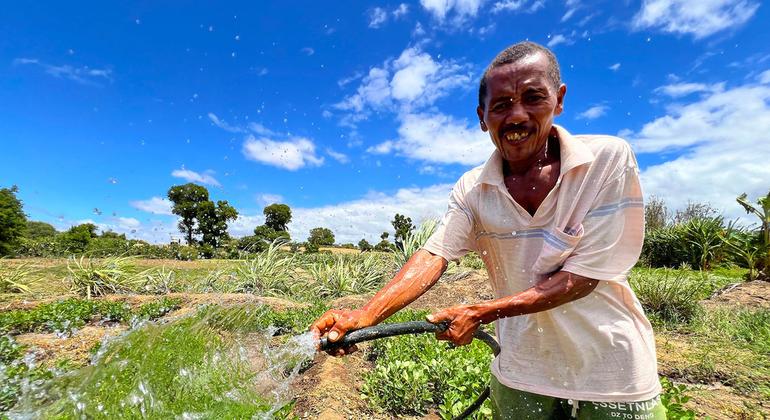Together, UNICEF and the UN Development Programme are working on reinforcing resilience and sustainable development in Madagascar, particularly in the south of the country which has been heavily affected by drought and climate change. With a focus on addressing humanitarian needs and building long-term development, the agencies are increasing their staff presence in the region to provide essential services and support. The goal is not just to respond to immediate crises, but to also work towards addressing the underlying issues that contribute to vulnerability in the area.
The UN agencies in Madagascar are looking at ways to prevent and mitigate the impacts of climate change in the south, where development indicators for health, education, nutrition, infrastructure, and energy supply are weaker compared to other parts of the island. The focus is on both humanitarian response and long-term development planning to create a more sustainable future for the region. By investing more heavily in specific geographical areas and creating convergence zones, the agencies are able to coordinate their efforts more effectively and build a more coordinated intervention that addresses multidimensional vulnerabilities.
The distinction between humanitarian work and development work is highlighted, with humanitarian efforts focused on addressing immediate needs in emergency situations, while development work aims to address the underlying structural issues that can lead to humanitarian crises. By working in partnership and focusing on convergence zones, UN agencies are able to maximize the impact of their interventions and create a more sustainable and resilient environment for the communities in Madagascar. This approach allows for a more coordinated and long-term response to the complex challenges facing the country.
By avoiding small-scale interventions in multiple locations and instead focusing on convergence zones, UN agencies are able to create a more comprehensive and coordinated response to the needs of vulnerable communities in Madagascar. This approach allows for better utilization of resources and expertise, leading to more impactful and sustainable outcomes. By working together in partnership, development and humanitarian actors can leverage each other’s strengths and resources to address the root causes of vulnerability and create lasting change in the region. This collaborative approach is essential for building resilience and promoting sustainable development in Madagascar, where the impacts of climate change and underdevelopment are deeply felt by the population.









